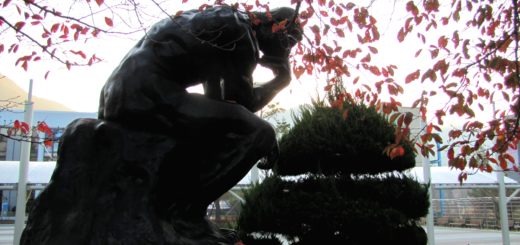Reflections: Courage, Lyricism, Self-Knowledge
It’s all relative.— I have never felt particularly brave in my life. Nor do I believe I have ever acted with any special degree of courage even in an isolated moment. On the contrary, I have often been disappointed at what I have regarded as a deficiency in this area. These days, however, judging myself relative to what I see around me, I have begun to feel like a combination of Achilles and King Kong. I do not believe that I have changed much. But something has changed.
The revolutionary spirit.— From Milan Kundera’s Life Is Elsewhere:
Lyricism is intoxication, and man drinks in order to merge more easily with the world. Revolution has no desire to be examined or analyzed, it only desires that the people merge with it; in this sense it is lyrical and in need of lyricism.
Lyricism is the voluptuousness of the simplistic. It is the temptingly obvious voice of a “togetherness” that purports to represent something profound, whereas in truth it is not merely lacking in depth, but rather represents the denial of depth. The lyrical sensibility is perhaps indispensable to the spirit of progressive “revolution,” not because genuine progressive radicals are lyrical men — they are not — but because lyricism fosters and reinforces the emotional state needed to sustain the mass illusion of righteousness and justice through all the purges, the tribunals, the destruction of public monuments and institutions, the tanks rolling over resisters, and the imprisonment of the non-compliant. For lyricism carries the soul weakened by its romance of popular sentimentality into an emotional realm in which nothing must be “examined or analyzed”; in this realm, all will be accepted without question, as a man who is drunk shrugs off appeals to sober up with a wave of his hand, a shout of “I’m fine!,” and a call for “another song about Life!”
Above all, lyricism, like the revolutionary spirit it supports, cannot abide any doubts, analysis, skepticism, alternative interpretations, or ironic distance — especially ironic distance. Lyricism and revolution are all about believing, and acting on belief, clinging to the absolute truth of “the movement.” Irony is rational detachment and an inclination to smile at the earnest intensity of men’s absolute certainties. Lyricism is a blurring bubble of collective feeling that would immediately be burst by the prick of irony. Hence, the lyrical mind despises the man of ironic detachment, just as the progressive revolutionary desires his death.
Progress.– A Virginia communist who pretends to represent the aims of education and the interests of black Americans has delivered an activist rant against parents who oppose the teaching of critical race theory in public schools, concluding with the imperative, with reference to those parents, “Let them die!”
To all those outraged by this communist’s “remark,” or rallying to fight the teaching of critical race theory “all the way to the Supreme Court,” I have only this to say: Why are your children still in public school? Why don’t you take responsibility for their futures and save them from the authoritarian indoctrination once and for all?
You need two incomes in order to afford that new car or the bigger house? Really? You need that luxury more than you need your children to live in freedom?
Your neighborhood schools were just fine before the leftists moved in this year with the critical race theory lessons? If you believe that, you are a perfect product of compulsory schooling yourself.
Critical race theory is merely a flashy new label on the same old progressive education sham that has been enslaving souls throughout the world for over a century. Critical race theory is just one new face for John Dewey’s machine for engineering minds for “industrial democracy,” the compulsory mass retardation process through which we have all been churned, recalibrated ever so slightly to match today’s trendy jargon. You were force-fed earlier versions of this indoctrination in your own school days. The fact that you cannot admit that to yourself is evidence of how effective the method has been, and of the stranglehold government schooling now has on modern life throughout the “advanced” world.
You too were morally and intellectually stunted by your education. We are all less than we might have been. We are all retarded humans, in the most literal and unequivocal sense. If you insist on replying with an indignant, “Speak for yourself, buddy!” then you are the problem. The moment you accept the truth of what was done to you, and begin the painful but ennobling process of examining and analyzing how it was done, you have taken the first step toward self-knowledge, and hence the most necessary step toward spiritual freedom.
(I wrote the guidebook for that necessary first step to self-emancipation, for anyone courageous enough to face it.)


